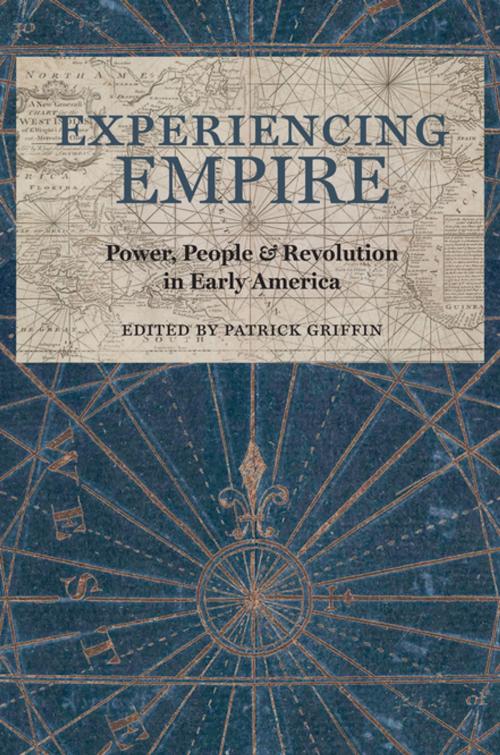Experiencing Empire
Power, People, and Revolution in Early America
Nonfiction, History, Americas, United States, Revolutionary Period (1775-1800)| Author: | ISBN: | 9780813939896 | |
| Publisher: | University of Virginia Press | Publication: | July 24, 2017 |
| Imprint: | University of Virginia Press | Language: | English |
| Author: | |
| ISBN: | 9780813939896 |
| Publisher: | University of Virginia Press |
| Publication: | July 24, 2017 |
| Imprint: | University of Virginia Press |
| Language: | English |
Born of clashing visions of empire in England and the colonies, the American Revolution saw men and women grappling with power— and its absence—in dynamic ways. On both sides of the revolutionary divide, Americans viewed themselves as an imperial people. This perspective conditioned how they understood the exercise of power, how they believed governments had to function, and how they situated themselves in a world dominated by other imperial players.
Eighteenth-century Americans experienced what can be called an "imperial-revolutionary moment." Over the course of the eighteenth century, the colonies were integrated into a broader Atlantic world, a process that forced common men and women to reexamine the meanings and influences of empire in their own lives. The tensions inherent in this process led to revolution. After the Revolution, the idea of empire provided order—albeit at a cost to many—during a chaotic period.
Viewing the early republic from an imperial-revolutionary perspective, the essays in this collection consider subjects as far-ranging as merchants, winemaking, slavery, sex, and chronology to nostalgia, fort construction, and urban unrest. They move from the very center of the empire in London to the far western frontier near St. Louis, offering a new way to consider America’s most formative period.
Born of clashing visions of empire in England and the colonies, the American Revolution saw men and women grappling with power— and its absence—in dynamic ways. On both sides of the revolutionary divide, Americans viewed themselves as an imperial people. This perspective conditioned how they understood the exercise of power, how they believed governments had to function, and how they situated themselves in a world dominated by other imperial players.
Eighteenth-century Americans experienced what can be called an "imperial-revolutionary moment." Over the course of the eighteenth century, the colonies were integrated into a broader Atlantic world, a process that forced common men and women to reexamine the meanings and influences of empire in their own lives. The tensions inherent in this process led to revolution. After the Revolution, the idea of empire provided order—albeit at a cost to many—during a chaotic period.
Viewing the early republic from an imperial-revolutionary perspective, the essays in this collection consider subjects as far-ranging as merchants, winemaking, slavery, sex, and chronology to nostalgia, fort construction, and urban unrest. They move from the very center of the empire in London to the far western frontier near St. Louis, offering a new way to consider America’s most formative period.















